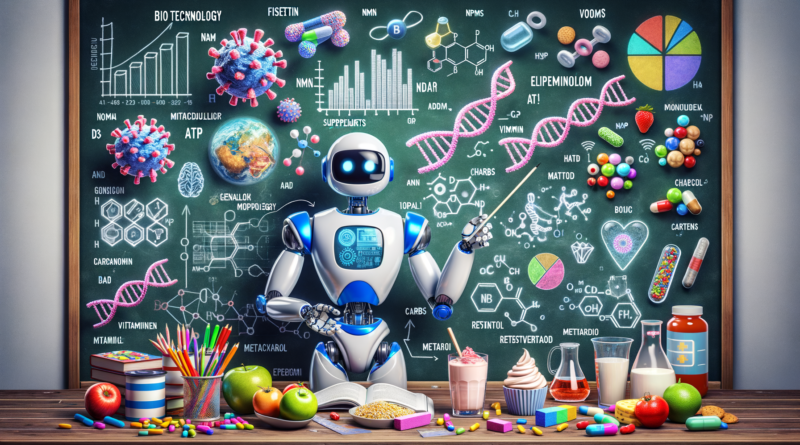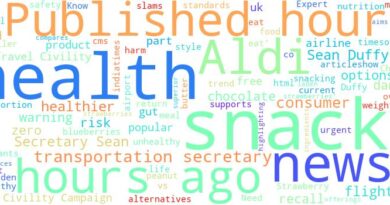AI Machine Learning Advancements in Nutrition for 2025
Personalized Nutrition Recommendations
By 2025, the evolution of AI and machine learning has led to groundbreaking advancements in personalized nutrition. These sophisticated algorithms can provide highly tailored dietary recommendations by analyzing a complex array of inputs, including genetic data, microbiome composition, and an individual’s lifestyle choices. Personalized nutrition advice aims to optimize health outcomes by suggesting precise dietary plans that are tailored to an individual’s unique biological and ecological profile. This precision-driven approach has the potential to enhance health management by addressing individual health risks and promoting well-being on a granular level.
Real-time Dietary Monitoring
The state-of-the-art machine learning models of today enable real-time monitoring of dietary habits, an advancement that has transformed how individuals manage their nutrition. Through wearable devices and apps, AI algorithms accurately track and analyze food consumption seamlessly. These tools offer instant feedback and suggestions, enabling users to make real-time adjustments to foster healthier eating habits. This dynamic approach not only promotes mindfulness in eating but also empowers individuals to make informed choices with actionable insights readily available at their fingertips.
Predictive Health Outcomes
AI ML systems are now pivotal in forecasting potential health outcomes through the analysis of dietary patterns. Utilizing vast datasets, these models identify correlations between nutrition and diverse health conditions, creating opportunities for early interventions and preventive measures. The predictive power of these models allows healthcare researchers and providers to understand and address risk factors before they manifest into health issues, ultimately supporting a shift toward proactive health management rather than reactive care.
Advanced Food Labeling and Analysis
Machine learning has revolutionized food labeling and analysis, offering a new dimension of clarity and insight to consumers. AI-powered tools provide detailed insights into nutritional content, the presence of allergens, and even assess the environmental impact of products. This innovation empowers consumers to make more informed purchasing decisions that align with their health goals and ethical considerations, setting the stage for a more health-conscious and environmentally aware consumer base.
Nutrigenomics Integration
The marriage of AI and nutrigenomics has solidified personalized nutrition as an essential part of modern healthcare. By dissecting how genetic variations influence nutrient processing, AI ML offers custom dietary solutions that resonate with an individual’s genetic makeup. This knowledge not only enhances personal health but also powers significant advancements in public health strategies by providing systemic insights into population health trends and interventions.
Food Waste Reduction
AI technologies are increasingly being applied to mitigate food waste both in supply chains and households. Advanced algorithms now predict demand fluctuations and optimize food expiration dates to ensure product freshness. Additionally, AI-driven solutions propose recipes that make use of available ingredients, encouraging sustainable nutrition practices and reducing waste considerably, contributing to global efforts to tackle food security issues.
Dietary Pattern Recognition
The capacity of machine learning models to understand and categorize complex dietary patterns has opened new avenues in nutritional research. Researchers and health professionals now have the tools to explore the impacts of various diets comprehensively on health outcomes. As these models become more sophisticated, they pave the way for refined dietary guidelines that are evidence-based and adaptable to emerging food trends and health insights.
Virtual Nutrition Assistants
AI-driven virtual nutrition assistants have become central to personal nutrition management strategies. These virtual companions offer individualized advice, track dietary progress, and fine-tune recommendations based on real-time user preferences and feedback. The interactive nature of these assistants ensures a personalized and engaging nutrition management experience, encouraging long-term adherence to healthy lifestyles.
Enhanced Nutritional Research
AI has made significant contributions to nutritional research, transforming the speed and efficiency with which data from clinical trials and population studies are analyzed. Machine learning algorithms excel at uncovering hidden patterns and generating insights that drive the development of innovative nutritional therapies and interventions. This capability enhances the researchers’ ability to formulate evidence-based strategies that can substantially improve public health outcomes.
Cross-disciplinary Approaches
In 2025, AI ML in nutrition is increasingly characterized by its integration across various fields such as psychology, behavioral science, and environmental science. This cross-disciplinary approach acknowledges the intricate relationships between diet, behavior, and environmental factors. By considering these complex interactions, AI ML supports comprehensive health interventions that promote both individual well-being and sustainability goals. Such holistic strategies are crucial in addressing the pressing health challenges of the contemporary world.
This report illustrates how the integration of AI and ML technologies into nutrition science is paving the way for innovation, personalized care, and sustainable practices, fundamentally transforming how we approach dietary health and wellness in a rapidly changing world.
Author Gary Dale & OPENAI MODEL gpt-4o

